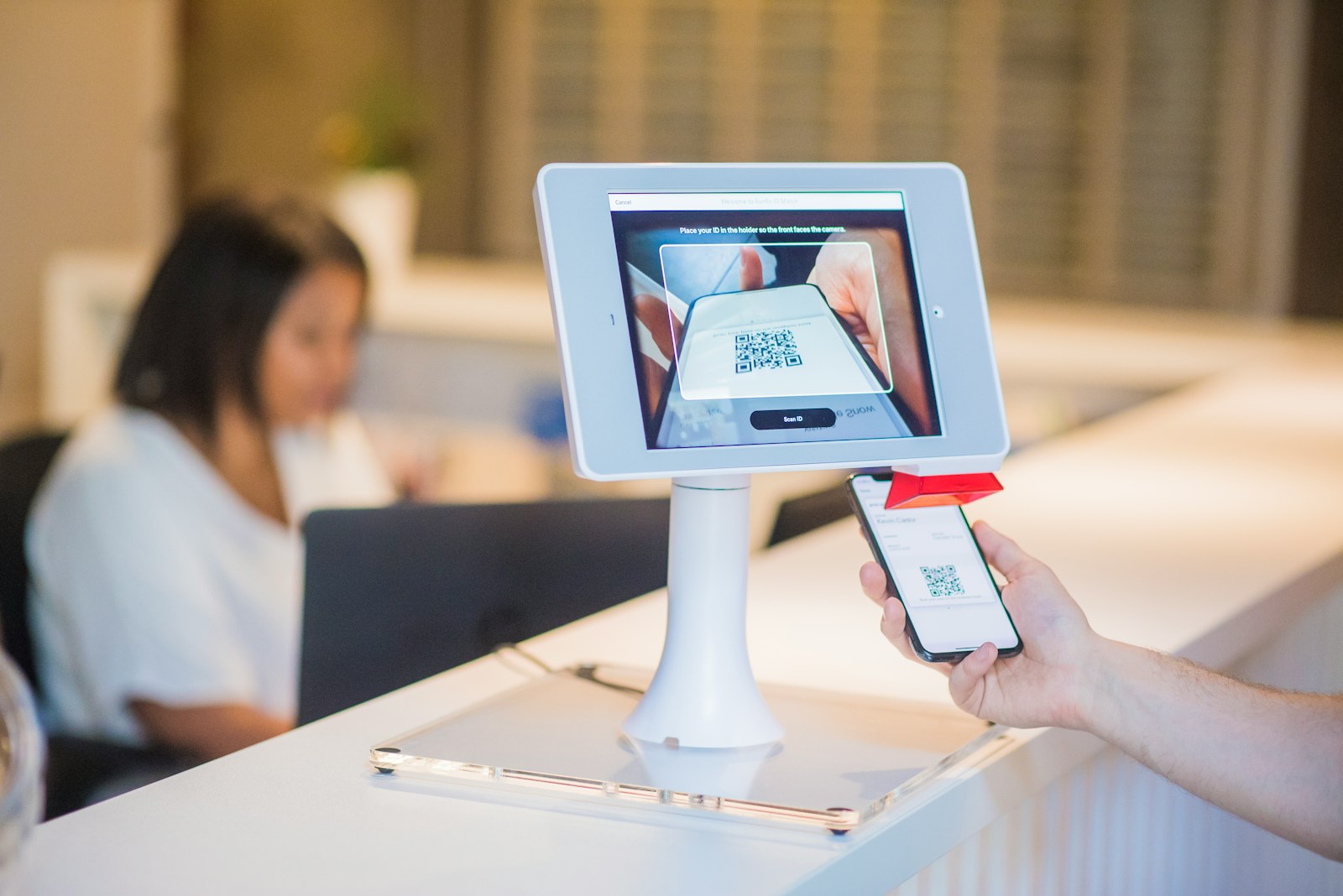In a world where technology evolves at an unprecedented pace, one Japanese innovation stands out for its simplicity and widespread impact: the QR code. First designed for the automotive industry, this matrix barcode has transcended its initial purpose, revolutionizing various sectors and becoming an indispensable part of our digital lives. From enhancing retail experiences to streamlining payments and even saving lives in healthcare, QR codes have undeniably left a mark on global technology. This article delves into the origins, applications, and future of QR codes, showcasing how a seemingly straightforward concept has transformed into a cornerstone of modern tech.
From Japan to the World: The Birth of QR Codes
QR codes, short for Quick Response codes, were created in 1994 by a Japanese company named Denso Wave, a subsidiary of Toyota. The initial purpose was to track vehicles during manufacturing; they needed a code that could store more information than the traditional barcode and be scanned more quickly. This necessity gave birth to the QR code, which could encode data both horizontally and vertically. Its efficiency and the decision by Denso Wave not to exercise their patent rights led to QR codes becoming a global standard. Today, these square-shaped codes are recognized worldwide, bridging the gap between physical and digital information in countless industries.
The Inventive Minds Behind QR Technology
The creation of QR codes can be credited to a team led by Masahiro Hara from Denso Wave. Hara and his team were tasked with creating a tool that would enhance productivity and accuracy in the tracking of automotive parts. Their invention allowed for the storage of up to 7,089 numeric characters or 4,296 alphanumeric characters, a significant leap from the capacity of traditional barcodes. The ingenuity of QR codes lay not just in their capacity but also in their ease of use, as they could be scanned from any direction in 360 degrees. This innovation earned Hara the prestigious Popular Prize at the 2014 European Inventor Award, underlining the global impact of QR codes.
QR Codes: Beyond Scanning, A Tech Revolution
QR codes have evolved far beyond their original application in the automotive industry. They now facilitate a wide range of functionalities across various sectors. In marketing, QR codes connect consumers to content, discounts, and product information with a simple scan. In logistics, they improve the efficiency of tracking and managing inventory. Even in personal use, QR codes have found their way into sharing contact information or Wi-Fi passwords. The adaptability of QR codes has made them a versatile tool in tech, capable of evolving with changing industry needs and consumer behaviors.
How QR Codes Are Changing the Retail Landscape
In retail, QR codes have revolutionized the customer experience. They offer a contactless method of accessing product details, reviews, and comparisons, empowering consumers with information at their fingertips. For retailers, QR codes provide valuable data on customer behavior and preferences, enabling personalized marketing and promotions. The technology also facilitates a smoother checkout process, reducing wait times and improving customer satisfaction. As retail continues to blend with digital spaces, QR codes serve as a critical bridge, enhancing the shopping experience in both physical and online environments.
The Seamless Integration of QR Codes in Payments
One of the most transformative impacts of QR technology has been in the payments sector. QR codes enable secure and convenient transactions without the need for physical cards or cash. This system has gained immense popularity in Asia, with platforms like Alipay and WeChat Pay leading the way. The adoption of QR codes in payments reduces transaction costs and increases accessibility, making it easier for small businesses to accept digital payments. For consumers, it means a faster, safer checkout experience. The simplicity and security of QR code payments have the potential to redefine global financial transactions.
QR Technology in Health Care: Saving Lives
In healthcare, QR codes are more than a convenience; they are a lifeline. They offer a quick way to access patient records, reducing medical errors and saving critical time in emergencies. QR codes also streamline the management of medication and inventory, enhancing operational efficiency in healthcare facilities. During the COVID-19 pandemic, QR codes were instrumental in contact tracing efforts and verifying vaccination statuses, playing a crucial role in controlling the spread of the virus. The application of QR technology in healthcare demonstrates its potential to not only improve efficiency but also save lives.
The Role of QR Codes in Streamlining Events
Event management has benefited significantly from QR technology. QR codes on tickets or invitations enable a swift, seamless entry process, reducing queues and improving the attendee experience. They also facilitate interactive experiences during events, allowing attendees to access schedules, maps, and additional content with a simple scan. For organizers, QR codes offer real-time insights into attendance and engagement, aiding in the planning and execution of successful events. This technology has become indispensable in creating organized, engaging, and memorable events.
Enhancing Educational Experiences with QR Codes
Education is another sector where QR codes are making a difference. They provide instant access to supplementary materials, videos, and online resources, enriching the learning experience. Teachers use QR codes to share assignments and feedback, facilitating a more interactive and engaged classroom. For students, QR codes offer a new dimension of learning, making education more accessible and engaging. The technology also simplifies administrative tasks, from tracking attendance to accessing library resources, underscoring the versatility of QR codes in educational settings.
QR Codes and the Future of Advertisement
In advertising, QR codes have opened new horizons for creativity and engagement. They link the physical world with the digital, allowing brands to create immersive experiences. From interactive billboards to personalized offers, QR codes make advertisements more engaging, measurable, and targeted. This technology provides a direct line to consumers, offering insights into their preferences and behaviors. As advertisers seek more innovative ways to capture attention, QR codes stand out as a powerful tool in the future of marketing.
The Environmental Impact of QR Code Adoption
The shift towards QR codes also has a significant environmental benefit. By reducing the need for printed materials, QR codes help lower paper consumption and waste. In sectors like retail and events, where brochures and tickets were traditionally printed, QR codes offer a sustainable alternative. This not only aligns with growing consumer demand for eco-friendly practices but also helps businesses reduce their environmental footprint. The adoption of QR codes is a step towards a more sustainable, digital-first approach in various industries.
Overcoming Challenges: The Security of QR Codes
Despite their many benefits, QR codes are not without challenges, particularly concerning security. As their use becomes more widespread, so does the potential for malicious exploitation. Fake QR codes can direct users to phishing sites or facilitate the download of malware. Addressing these threats requires continuous innovation in QR technology and greater public awareness about safe scanning practices. Companies and consumers alike must prioritize security to fully leverage the benefits of QR codes without compromising data privacy and safety.
What’s Next? The Evolving Future of QR Technology
The future of QR codes is bound to be as dynamic as their past. With advancements in technology, we can anticipate QR codes becoming even more integrated into our daily lives. Augmented reality, for example, could take QR code interactions to new levels, offering even more immersive experiences. The potential for QR codes to facilitate seamless, secure identity verification could also reshape access control in various settings. As we look ahead, the continued evolution of QR technology promises to unlock new possibilities, making our digital and physical worlds more connected than ever.
From their inception in the automotive industry to becoming a global tech phenomenon, QR codes have proven to be a versatile and enduring innovation. The journey of QR technology from Japan to the world showcases the power of a simple idea to revolutionize entire industries. As QR codes continue to evolve, their potential to enhance, streamline, and safeguard our digital interactions remains unparalleled. In an era where technology is in constant flux, QR codes stand out as a constant, shaping the future of our digital and physical interactions in myriad ways.








